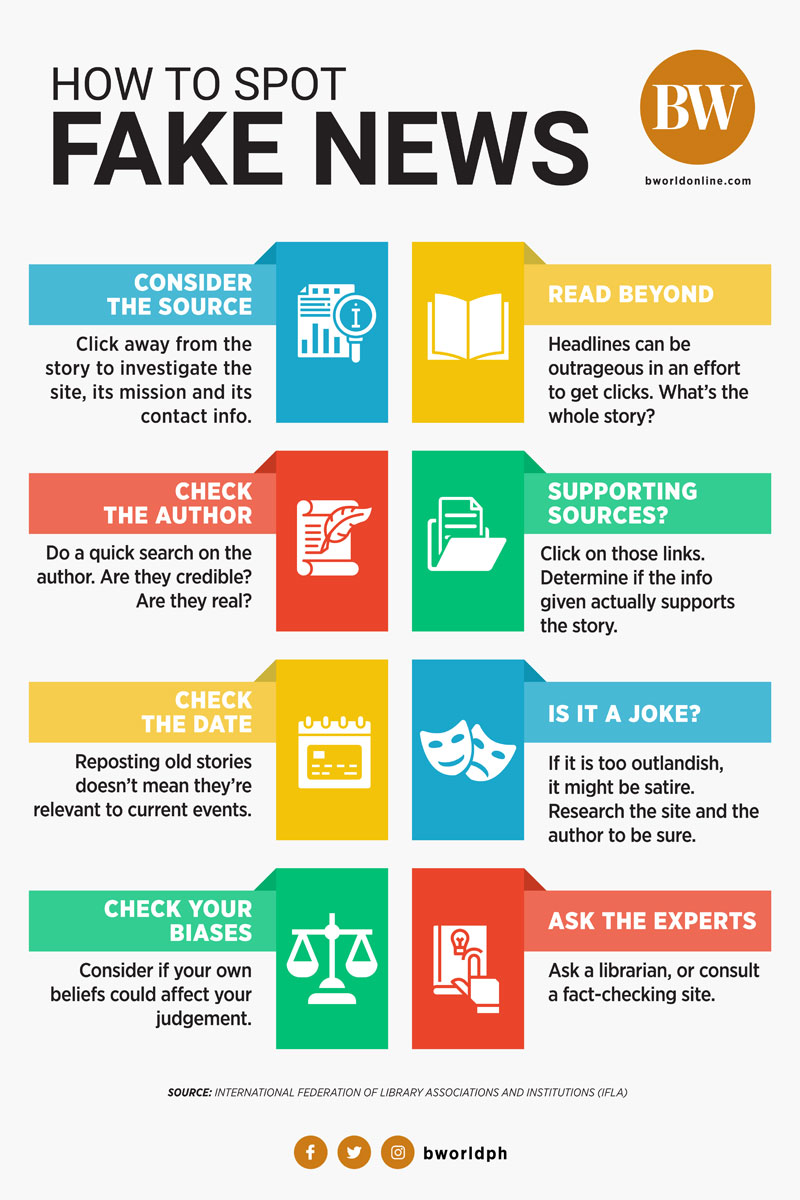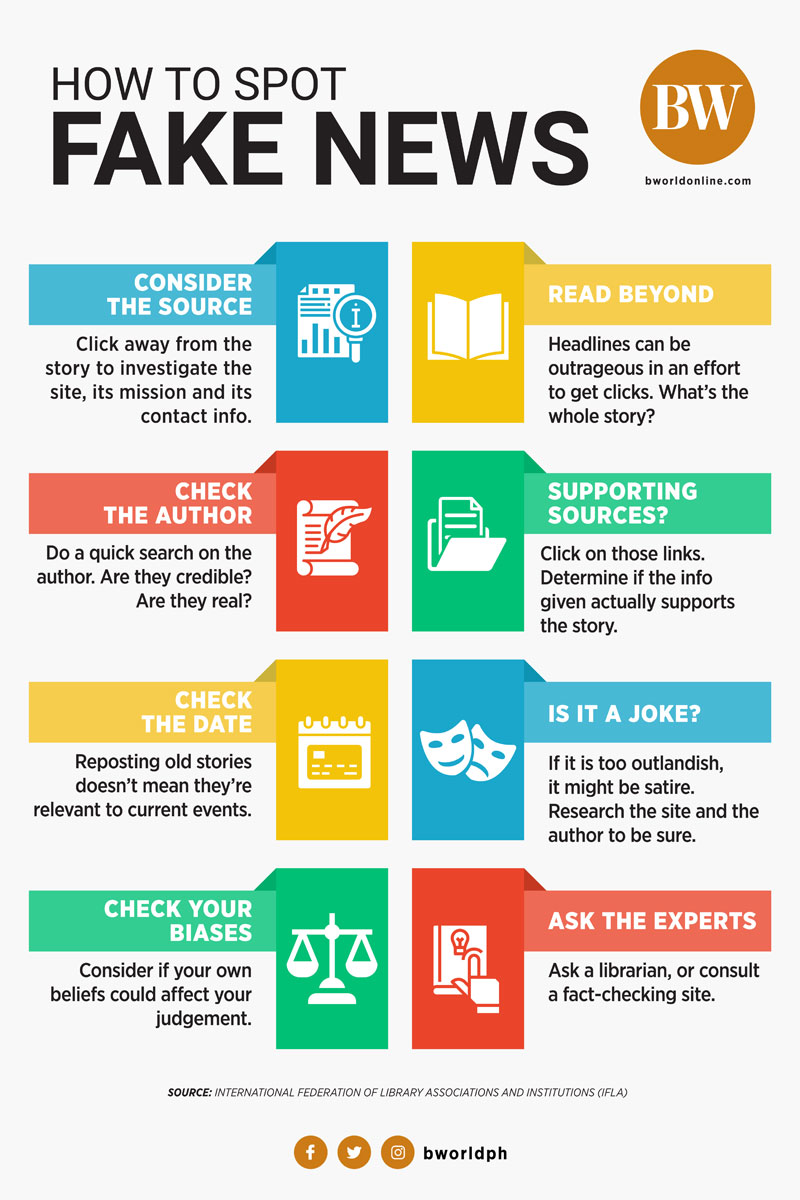 Follow us on Spotify BusinessWorld B-Side
Follow us on Spotify BusinessWorld B-Side
Fake COVID-19 cures and preventive measures are proliferating online, in chat groups and social media. Bananas, saltwater, and onions have all made the rounds as coronavirus remedies (which they aren’t).
As the world waits for an effective vaccine against the virus, netizens may fall prey to these fake stories and forward them.
FlipScience, a Filipino science news and features website, has contributed to the “COVID-19 fake fact debunking” movement in the country.
FlipScience co-founder Mikael Angelo Francisco tells BusinessWorld reporter Angelica Y. Yang how citizens can identify and debunk fake news about the virus.
TAKEAWAYS
Be wary of bold headlines.
The anatomy of a fake news story begins with a bold headline, such as “Bananas prevent coronavirus.”
Another component is the lack of any scientific evidence or cherry-picked lines from studies, said Mr. Francisco. He added that independent websites are usually the culprits in spreading these stories, but well-meaning people who don’t do enough research can also unknowingly spread misinformation among family and friends via social media or online chat groups.
On rare occasions, big news establishments can also publish a fake news story. “Just because it’s viral, doesn’t mean you can trust it,” Mr. Francisco said.
If it’s too good to be true, it probably is.
Mr. Francisco suggested that netizens take these three steps whenever they get a forwarded message:
- Assess whether the story seems too good to be true.
- Think about what the piece is really saying.
- Look for studies that support or debunk those claims, or ask an expert.
“When you find something that sounds too good to be true–if it’s like a magic cure for COVID-19, or something that ‘the doctors don’t want you to know about’–that should raise some red flags already,” he said.
Instead of passively consuming these stories, one must be critical.
“For example, going back to the advice that bananas can protect you from the COVID-19, you should think back and try to reflect on what you know about bananas. Have they ever been prescribed as a cure for any respiratory illnesses or diseases?” he said.
The last step is reading scientific studies or asking an expert to verify the claims. “If you can’t find any reliable source that reaffirms that advice or proves that it’s true, it’s probably false,” Mr. Francisco said.
Recorded remotely on November 13. Produced by Nina M. Diaz, Paolo L. Lopez, and Sam L. Marcelo.
Follow us on Spotify BusinessWorld B-Side
Related stories:
Calling BS in a data-driven world
On social media, it’s better to be a skeptic



